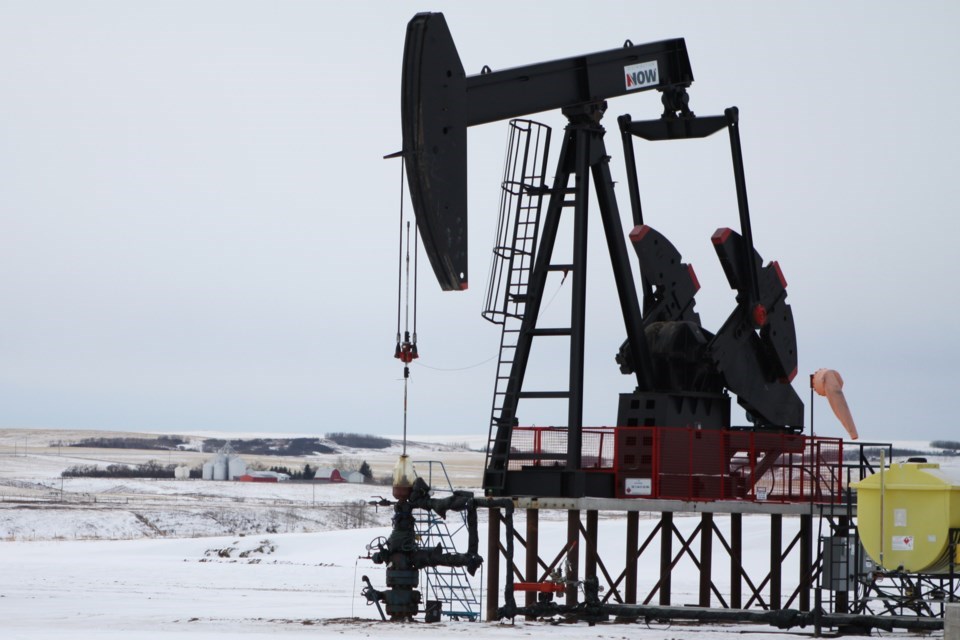Canada needs to become more energy-independent and the country needs to work toward a national energy strategy to protect itself from volatile market changes, like the cancellation of the Keystone XL pipeline, says the president of an organization representing rural Alberta municipalities.
Paul McLauchlin, president of Rural Municipalities of Alberta (RMA), said relying on international energy markets is fraught with risk, but looking inward as a country for an energy strategy – for all types of energy – is something the country can control.
While the cancellation of Keystone by U.S. President Joe Biden impacted many rural communities in the east of the province, McLauchlin said the decline in the oil and gas sector is felt across Alberta, with many rural jurisdictions pulling much of their tax base from the industry.
"It's touching on an existential crisis. It definitely is getting close to that," McLauchlin said.
"If you see a negative trajectory in our oil and gas industry, that definitely changes rural Alberta. Oil and gas is core to our existence as it is now. "
Without action, McLauchlin said the province runs the risk of becoming the Rust Belt – a U.S. region from New York through the Midwest that was once dominated by manufacturing but has now become synonymous with regions facing industrial decline.
"We don't want to become one of these hollowed-out industrial centres where we've got rusting gas plants, and then it becomes a shadow of its former self," he said.
Rural municipalities can be leaders in creating a national energy strategy because they are so close to the situations on the ground, he noted – they can build a consensus together and then bring a plan forward to the federal government. An energy plan that deals with Canada’s climate change goals and takes the strategy down to a local level is possible, McLauchlin said.
Natural gas can be a "phenomenal product", McLauchlin said, and in the right situation and treated the right way, can be a low-carbon fuel.
The country needs to also supply different markets with blue hydrogen, a product made from natural gas in the process of steam methane reformation, or green hydrogen, a hydrogen fuel created using renewable energy instead of fossil fuels, McLauchlin suggested.
Right now, some jurisdictions in southern Alberta are already capitalizing on renewable products and showing a lot of success, with up to 20 per cent of municipal tax assessment coming from renewable energy, he noted.
But McLauchlin said the province must act quickly.
"We have to find the solutions and we have to move fast on this. None of this is theoretical," he said. “[We need] future planning instead of looking backwards."
Keystone decision 'disappointing'
Doug Irving, Mayor of Hardisty, where the Keystone pipeline begins, said the news of the project's cancellation was disappointing, but not devastating.
The pipeline is owned by TC Energy and starts at the Hardisty Terminal, which is a major storage and pipeline export hub for the province.
The project brought some 600 workers into the town, which has a permanent population of 540 people – a huge boom for Hardisty's hospitality industry.
"It's a major economic disruption, that's for sure," Irving said. "It is a big blow to us."
The Alberta government expected the pipeline to bring 2,000 construction jobs to the province over two years and then generate $30 billion in revenue after it was complete. The government invested $1.5 billion in the project in March 2020 to get construction started on the extension after it was approved by the former U.S. administration.
U.S. President Joe Biden cancelled the pipeline immediately following his January 20 inauguration.
"Maybe we can get a reversal on the permit. I don't think it'll happen very quickly. But that's the sort of view of Hardisty. It's outside our control and we have to work around it as best we can and hope for the best in the future,” Irving said.
Added McLaughlin, “"We have to force ourselves to innovate because I don't think [we] have a choice, right? Apathy isn't your choice – that's not going to work."



